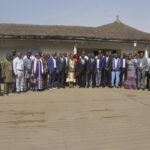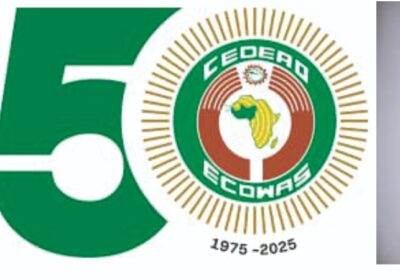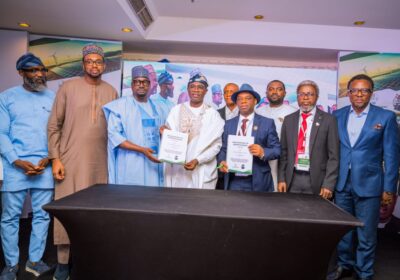Rwanda Faces International Pressure as European Union Imposes Sanctions.
By Raymond Enoch
The European Union (EU) has taken a bold step in its relationship with Rwanda, officially severing all military cooperation with the central African nation.
This dramatic move signals a significant shift in international diplomacy, as the EU now considers the Rwandan Army, the Rwanda Defense Forces (RDF), a terrorist organization.
The EU’s action comes as part of an escalating response to Rwanda’s alleged destabilizing presence in neighboring Democratic Republic of the Congo (DRC).with the tensions surrounding Rwanda’s involvement in the DRC’s ongoing conflict intensified.
The EU has made it clear that it will no longer tolerate the support of armed forces responsible for regional violence.
The End of Strategic Mineral Cooperation
Another significant consequence of the EU’s action has been the termination of all cooperation concerning strategic minerals, a critical component of Rwanda’s economy. Rwanda’s mineral exports, particularly those from its coltan and tin mines, have long been key to its economic development, with global demand for these minerals, often used in high-tech devices, creating a source of both prosperity and contention.
The European Union’s suspension of trade agreements and the cooperation in the minerals sector aims to cripple Rwanda’s economy and its ability to fund military operations. Rwanda has long been accused of exploiting the mineral-rich territories of the DRC, where mining has funded rebel movements and exacerbated one of the world’s longest-running humanitarian crises.
Rwanda’s president, Paul Kagame, has frequently defended his country’s actions, arguing that the RDF’s involvement in the DRC is to ensure stability in the region. However, international actors have increasingly seen this justification as a cover for expanding Rwanda’s political and military influence in the DRC. The EU’s decision represents a direct challenge to Kagame’s regional ambitions, with powerful repercussions.
Perhaps the most significant part of the sanctions package comes in the form of a direct order to President Paul Kagame: Withdraw your forces from the DRC immediately. The EU has indicated that daily assessments of the situation will now take place, with a clear path to further strengthening sanctions if the Rwandan government fails to comply.
The EU’s action has been hailed as a bold and decisive move against a regime that has, for years, been accused of destabilizing the region for its own strategic gain. The Rwandan government’s response to the sanctions has been one of defiance, with the Kigali administration maintaining that its military actions are necessary for national security and regional stability. However, the EU’s determination could set the stage for even greater international isolation if Kagame’s government does not adhere to the demands.
Félix Tshisekedi’s Diplomatic Victory
One of the most significant beneficiaries of this new international pressure is DRC President Félix Tshisekedi. The EU sanctions represent a major diplomatic win for Tshisekedi, who has long sought to expose Rwanda’s role in the violence plaguing the DRC, particularly in the eastern provinces. Tshisekedi’s bold stance and persistent diplomatic pressure seem to have finally paid off in a way that previous Congolese leaders could only dream of achieving.
This diplomatic breakthrough is all the more remarkable given the history of Rwanda’s interventions in the DRC, dating back to the 1990s when both former presidents Mobutu Sese Seko and Laurent-Désiré Kabila failed to curb Rwanda’s influence in the country. Joseph Kabila, who succeeded his father Laurent-Désiré, was unable to stop Rwanda’s military incursions, and under his tenure, the Rwandan government’s involvement in the region deepened.
Tshisekedi’s diplomatic efforts have been steadfast in confronting Rwanda’s interference, and his success in aligning with the EU represents a significant shift in regional power dynamics. By securing international backing, Tshisekedi has sent a clear message: the era of Rwanda’s unchecked influence in the DRC is over. This marks a sharp contrast to the inability of his predecessors to achieve any such tangible result.
The EU’s sanctions represent a pivotal moment for both Rwanda and the DRC. For Rwanda, these measures not only affect its military operations but also challenge its international standing. With military cooperation severed and mineral trade halted, Rwanda’s economic and military future looks uncertain. The sanctions are a direct threat to Kagame’s authority and his vision for Rwanda as a dominant regional player.
For the DRC, this marks a potential turning point. Tshisekedi’s government now finds itself in a position to lead with a renewed sense of regional and international support. The ending of Rwanda’s military presence could pave the way for long-term peace in eastern DRC, which has suffered decades of conflict fueled in part by external intervention.
As the situation develops, the world will closely watch how Rwanda responds to these sanctions and whether they will lead to a change in Kagame’s policies. For the people of the DRC, there is cautious optimism that the EU’s actions will help bring an end to years of foreign interference and violence.
The coming months will be crucial in determining whether the EU’s bold stance will lead to peace and stability in the Great Lakes region—or whether Rwanda’s response will escalate the conflict even further. Either way, this moment in history marks a turning point in the international landscape of central Africa.








